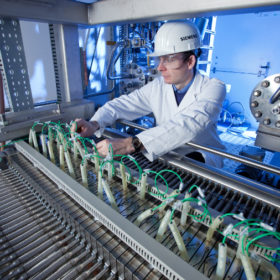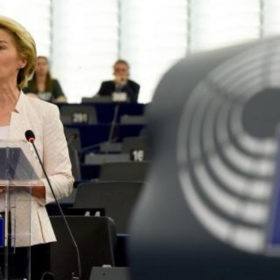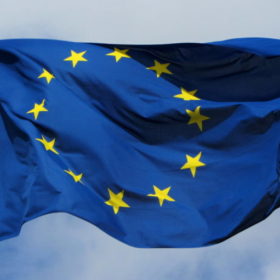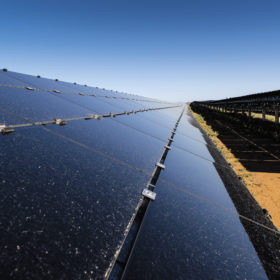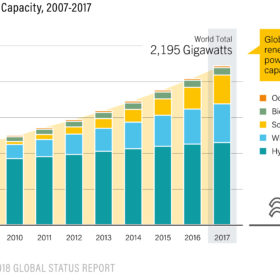Sector coupling in Europe could see solar and wind demand double
Market intelligence firm BloombergNEF has published a report with power company Statkraft and clean energy distributor Eaton highlighting the importance of sector coupling for Europe’s decarbonization plans. Analysts examined the power markets of Germany and the U.K. and concluded effective sector coupling including the use of green hydrogen could lead to greenhouse gas emission reductions of 83% by 2050.
EU climate law sets the stage for a green transformation
Although decried for lacking ambition and as an abdication of responsibility in some quarters, the climate law proposed by the European Commission may be more ambitious than it first appears, as Felicia Jackson, from the center for sustainable finance of the School of Oriental and African Studies at the University of London – considers here.
ERA-Net awards 23 future energy pilot projects across Europe
Under the umbrella of the European Union’s Horizon 2020 initiative, the research platform ERA has initiated a new batch of future energy projects. Looking at the list of winning projects, it is easy to tell that hydrogen, virtual power plant, and blockchain projects are really at the center of what Europe thinks will be important for its net-zero carbon plans by 2050.
Integrated energy system could see 110 GW of electrolyzers in Germany and Netherlands
A report from Dutch grid operator TenneT and gas business Gasunie suggests the companies should jointly develop infrastructure after 2030. With hydrogen and synthetic methane in demand, electricity and gas will become increasingly inter-linked. Only seamless integration of the two networks would enable the EU to achieve its net-zero-carbon 2050 plan.
Renewables are mainstream but sector coupling is progressing too slowly
More than a quarter of global electricity is generated from renewables, with solar the third largest source according to an annual overview drafted by global policy network REN21. Despite a year-on-year fall, solar accounted for the majority of generation capacity additions last year. But a lack of decarbonization policies across the heating, cooling and transport sectors puts a patchy energy transition in prospect.
REN21 report: record PV growth but soaring energy demand leaves renewables playing catch-up
Renewable energy has made great strides in electricity generation but the integration of renewables in the heating, cooling and transport sectors is still in its infancy. With those sectors making up around two thirds of global energy demand, there is still enormous potential to harness PV and other technologies.
